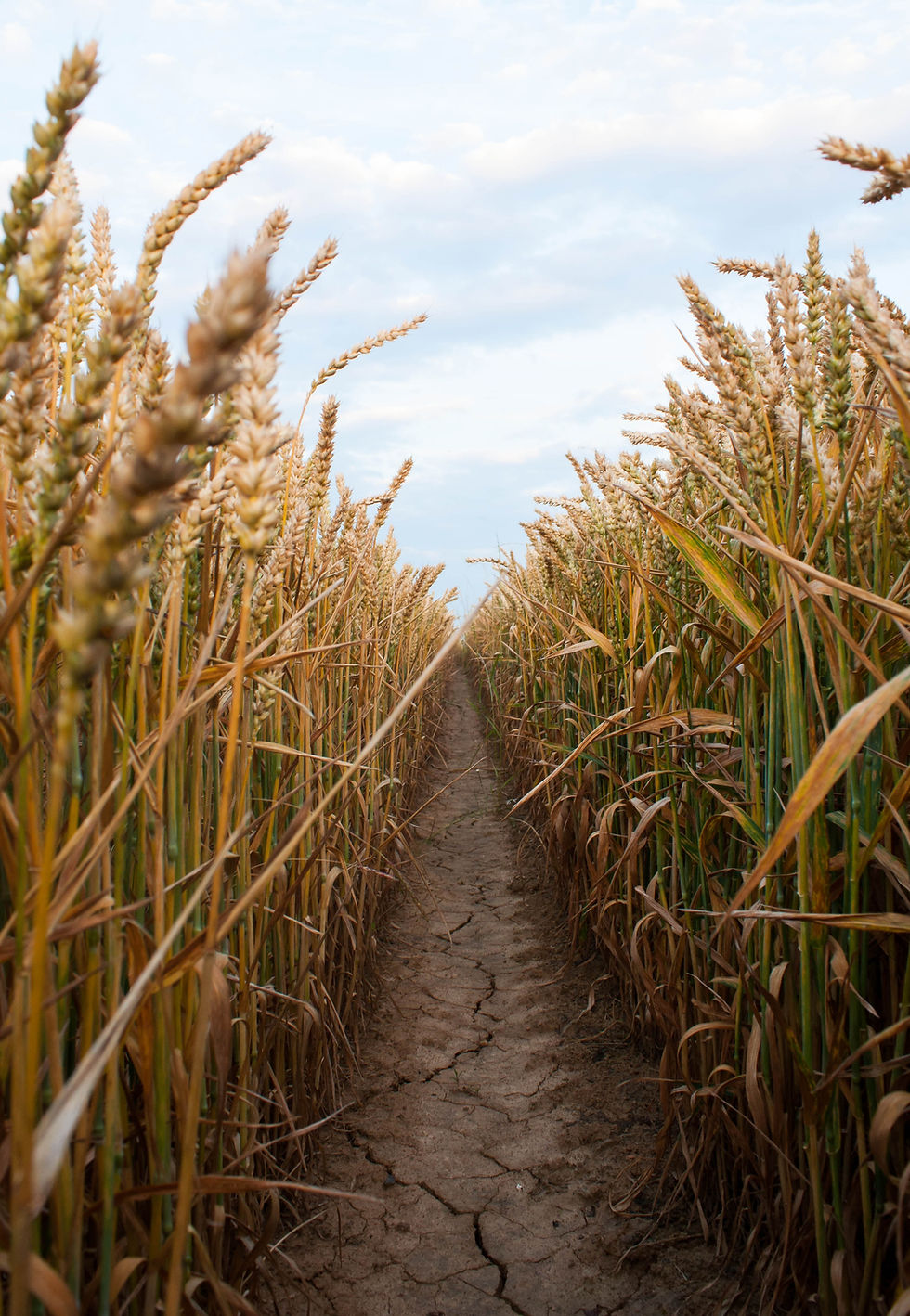German Myth - Harvest Spirits 2
- Sylvia Rose

- Jul 21, 2023
- 4 min read
Updated: May 21, 2024
Harvest spirits appear as animals, people, hybrids, demonic monsters or weather phenomena. Unlike domestic spirits such as the Kobold, harvest spirits are rarely helpful to humans. They might ignore, scare or openly attack people. Children are a favorite target as they wander into the fields to collect cornflowers. Here are the Harvest Spirits Roggenwolf, Cat spirits and Windsbraut.
Jump to:
Harvest spirits are also called Feldgeister (Field Spirits), Korngeister (Grain Spirits), or are named after the grains among which they appear, for example the Roggenwolf (Rye Wolf). Some are shape-shifters and can manifest in almost any form, even Dragons. These are three German harvest spirits commonly found in culture and myth.
See also:
Usually active in autumn, they inhabit or visit fields of corn, wheat, barley, rye and other grains. In Germanic mythology and folklore harvest spirits dominate the fall season. No matter what their size or appearance, they're powerful entities. Some carry trickster magic, some are demonic and some are just nasty.
Even unintentional disrespect to a harvest spirit can bring plagues of tragedy, illness, accidents, fires, storms, whirlwinds and destruction of crops. Upset them, and even cute spirits quickly turn ugly.
1. Roggenwolf - Rye Wolf
Appearing in an oat field, it's the Haferwolf, or it may be called Kornwolf (Grain Wolf). Roggenwolf has demonic associations and like most demons enjoys a tasty snack of tender children. Roggenwolf is used as a Kinderschreck to keep kids out of the fields.
The Wolf has worked its way through much of Germanic literature and mythology. Roggenwolf is sometimes accorded traits similar to the German werewolf. A person assumes the werewolf traits due to a curse, suicide or tragic death. The condition can't be spread through a bite or scratch. In the Rhineland-Palatinate region, the werewolf is also an Aufhocker, who jumps on the back of a passerby to slowly get heavier.
Unlike many harvest spirits, Roggenwolf is openly hostile and brings no benefit to a crop. Its prey is human. The demon wolf roams far and wide. Its eyes glow like hot coals and its voice the ominous rumble of thunder.
See also:
The Roggenwolf awakens primal fears. This spirit is unlucky to a household or one who sees it, as it can cause fires to rage through house, barn or dry fields and attacks anyone out after dark, ripping out the victim's throat. It kills domestic animals like chickens, sheep and piglets, leaving remains scattered in the yard. Its growls and snarls in a field of ripe grain might be heard at night.
Roggenwolf easily works together with other powerful demons such as Hafermann. In the distant past, animal sacrifices were made to appease the wrath of Harvest Demons such as Roggenwolf. Chickens were popular offerings. If it shows up, at least we know it won't stay long. It wanders far in one night, and the human realm is only one of its feeding grounds.
2. Weather Cats and Murrkater - cat spirits of the harvest
Male and female cat spirits have different attributes. The Weather Cats are female, also known as Windkatzen (Wind Cats) or Kornkatzen (Grain Cats). When crops bow in waves beneath wind, it's said the Weather Cats are passing through. Generally mild of temper, these animal spirits prefer to avoid human contact and are often seen from a distance.
If a Weather Cat is caught in the grain at threshing time, she will flee into the last stalks. The stalks are carefully cut and put in a place of honor in the house, to bring the blessing of the spirit throughout the year, and fair weather for next year's crops.
The Murrkater or grumbling tomcat has a different agenda. It's wise to listen for his rumbling purr in the fields, and avoid him. He likes to catch and eat children looking for cornflowers.
A big fat cat, he appears harmless but lures unwary victims close, then tears them to shreds with razor-sharp claws. He rolls in the crop and makes flat spots. If he sprays his scent or urinates on the ground, nothing will grow in that soil.
See also:
Weather Cats and the Murrkater can cross through dimensions of life and death. In nature and animal worship, the cat is a shape-shifter with mystic connections. Weather Cats pass through like the winds and usually cause no harm. The best way to appease Murrkater is with a portion of harvest left standing, where he may come to hunt mice instead of children.
3. Windsbraut - Bride of the Wind
Windsbraut is usually a female entity but can be any gender. She appears as a whirlwind to steal crops where they stand, sucking up their grains. She has both demonic and sorcerous associations. As a demon her appearance causes chaos. She might arise from a storm or come out of a clear blue sky to wreak havoc on crops.
A human with powerful magic, such as a wizard or sorceress, can travel in the form of the Windsbraut. As such, the entity may be less focused on mass destruction and more on personal desire, for example vengeance, treasure, abducting a spouse or servant, or just passing through. This spirit also steals grain to stock the larder.
To protect against Windsbraut, a person throws a knife into the center of the whirlwind. In lore, magic and manifestations of the occult can be disarmed with iron or steel. In some cases the knife must be marked with three crosses. The Windsbraut then dies away or leaves the area. Another protection used against Windsbraut and other damaging harvest spirits is to sow the crop on the perimeter of the field first, then sow in rows.








